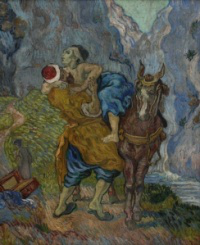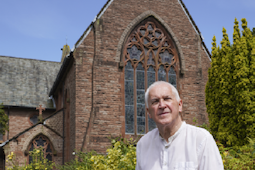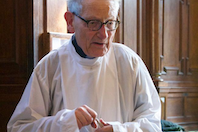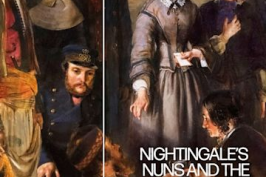Sunday Reflection with Fr Terry Tastard - 11 July 2010

Good Samaritan by Van Gogh
When God wanted to reveal himself to the world, he began by calling a particular people to be those who would be the first to receive his revelation. This Chosen People, the Jews, were led from slavery and given the Law, the Torah, as a standard to live by. This underlies our first reading from Deuteronomy, in which Moses reminds the people that the Law should be in their hearts and on their lips (30.14).
One of the questions the Jewish people frequently debated among themselves (and still do) is what it means to live by the Law. This is the background to the story that we know so well, the parable Jesus gives us of the good Samaritan (Luke 10.25-37). We know that Jews despised Samaritans, and that Jesus was challenging the lawyer to see that goodness can be found beyond the chosen people. We might also reflect that Samaritans in their turn rejected Jews: not long before Jesus told his disciples this parable they had all been turned away from a Samaritan village because they were Jews heading towards Jerusalem (Luke 9.52-53). Remembering this, we can see that Jesus is using this parable to challenge not only the lawyer but his own disciples.
The hero of the story is a Samaritan, a member of a despised group, the same people who not long ago had refused hospitality to Jesus and his followers. It is still a difficult message for us to hear. Those who follow Christ need to examine their hearts regularly so that they can strive to be free from prejudice. They are to recognise goodness at work wherever it is to be found, and to realise that no group has a monopoly on holiness and virtue.
If you doubt the lingering effects of prejudice, consider the story itself. After Jesus has told the story, he asks the lawyer: 'Which of these three proved himself to be a neighbour?' The obvious answer would be 'The Samaritan'. But the lawyer cannot bring himself to say the word Samaritan. Instead, he says it in a roundabout way: 'The one who took pity on him.'
Christians believe that through Christ the original Chosen People has been greatly enlarged to include the Church (Romans chapter 9-11; 1 Peter 2.9-10). All who are in Christ are taken into God's purposes and are witnesses, like the Jews, to the love of God who reaches out to us. But what does it mean for us to be a chosen people? It cannot mean that we follow the Law, the Torah in the same way as the Jewish people. We are still a people of the commandments, but we see the law in the light of Christ. Perhaps we could think of ourselves as a chosen people through being challenged by God to be a choosing people. We choose to follow the way of Christ, to seek to live the way he challenges us to live, as for example, by the parable of the good Samaritan. This is the law we seek to have in our hearts and on our lips, the example of Christ, strengthening us by the sacraments and by the gift of his grace. And yet, always, if you follow Christ, you come back to this mystery, that long before we were for God, God was for us. Our hearts should be deeply thankful and humbled by the divine mercy. 'You did not choose me but I chose you … to go out and bear fruit that will last' (John 15.16).
Fr Terry is Parish Priest at Holy Trinity Catholic Church in Brook Green, west London. His new book: Ronald Knox and English Catholicism is published by Gracewing at £12.99 and is available on Amazon, on ICN's front page. To read Sr Gemma Simmonds' review on ICN see: www.indcatholicnews.com/news.php?viewStory=16114





















